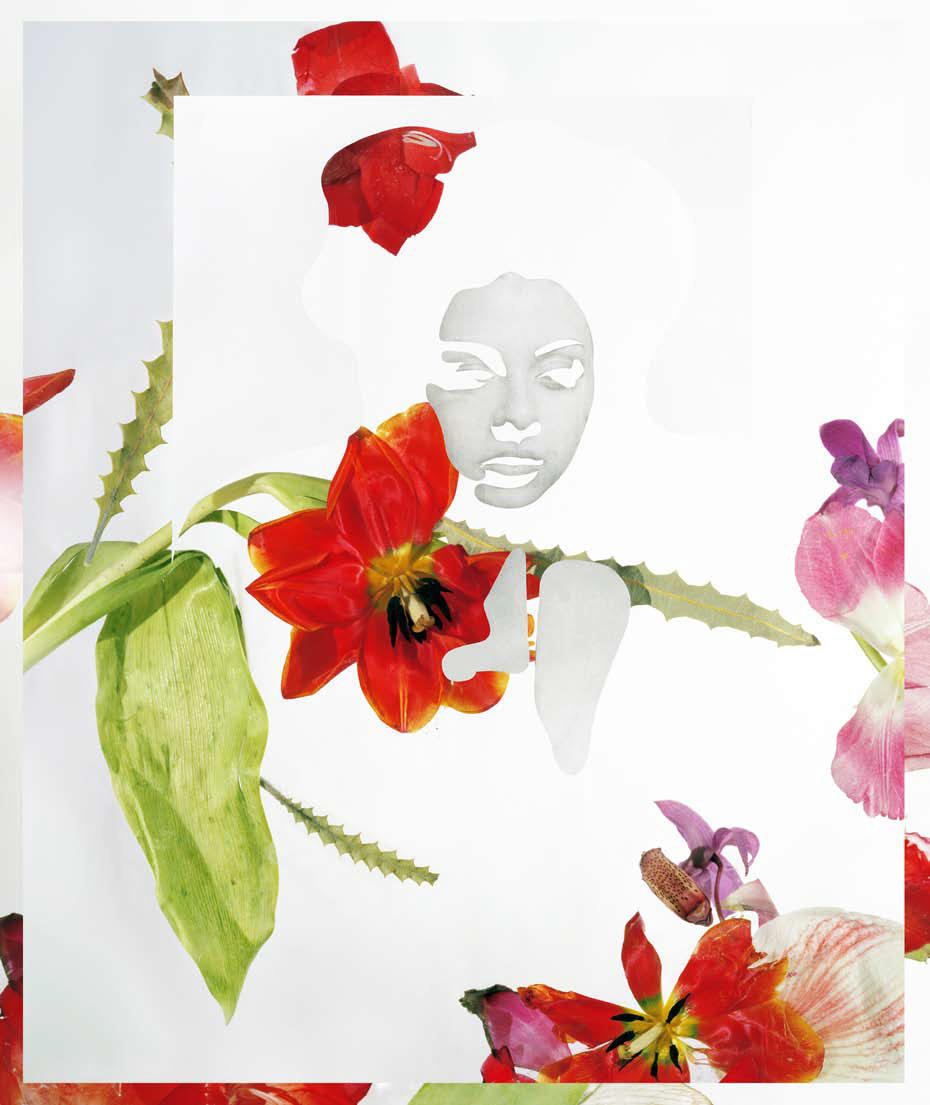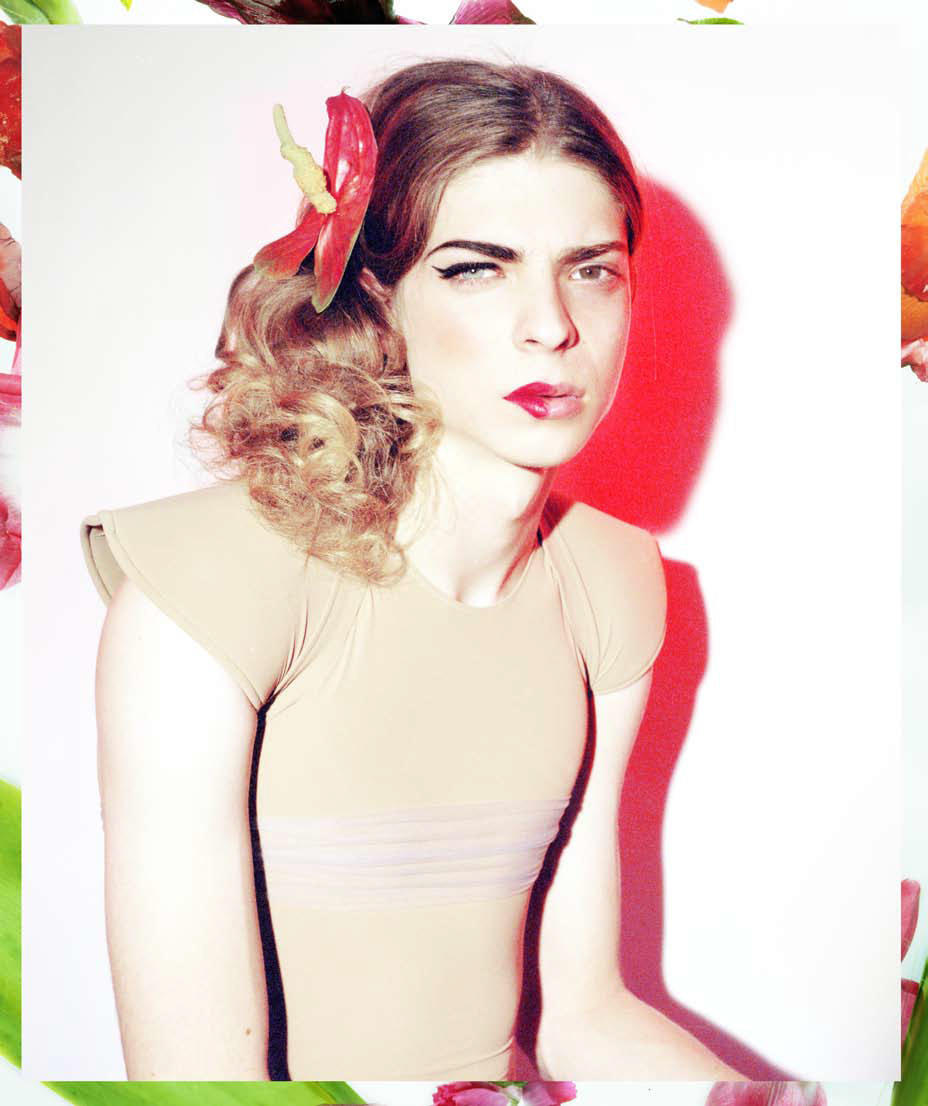
A home video camera follows a rail- thin teenager wearing strenuously applied makeup, an old rug as a dress, and an onion sack for a wig. Framed by a dirty white curtain, he sings classics by some of the greatest female voices of Arab song, from Umm Kulthum to Sabah. No one seems to mind the presence of a boy dressed as a girl, gently swaying his hips and flipping his wrists. On the contrary, the people around him whistle, whoop, and applaud as if the scene before them were the most normal thing in the world.

Bassem Feghali was born in the very small Lebanese town of Wadi Shahrour sometime in the 1970s. Perched high in the mountains along the Beirut-Damascus road, Wadi Shahrour is probably most famous for being the hometown of the legendary singer and actress Janet Feghali, popularly known as Sabah. Bassem is a distant relative of Sabah, and, following in her platinum- blond footsteps, he is en route to achieving a comparable stardom. A man who mostly plays a woman onstage, Bassem has secured a place as one of the most admired performers in the Arab world. Impersonating the likes of Haifa Wehbe, Nancy Ajram, Assala, Shakira, and of course Sabah, Bassem also boasts a cast of his own characters — living, breathing Lebanese stereotypes, each one more withering than the next.
Take Madame Antika Sursock, the embodiment of Lebanese Christian aristocracy living in the East Beirut neighborhood of Achrafieh. Antika speaks perfect French, interspersed with the (very) occasional Arabic word. A typical dialogue runs as follows: “I had put some money aside to donate to the Lions, but instead, I bought a coat. And the rest I was planning to use for the Murex d’Or, but instead, I had Botox for lunch. I am reminded here of the Italian philosopher, Francesco Zabrollo, who said that sex is like bridge; if you don’t have a good partner, you’d better have a good hand.” Well into her seventies, she claims to have been a childhood friend of Dalida. Coco Chanel, she adds, was once her house seamstress. Plainly, Antika knows all the great families of Lebanon and refers to most as “the son/daughter of so-and-so.” She is also, for lack of a better term, in constant heat — hitting on fathers and their sons, once even faking a heart attack so that she could demand mouth-to-mouth resuscitation from a handsome TV presenter.
Watching Sursock chase hot young men around the stage, no one seems to mind that a man, Bassem, is flirting with another man. Like the canonical madman who is coquettish in Arab cinema — or, say, the prattling of Dame Edna on Australian television — Bassem’s particular brand of gender play is both polite and clownish enough to be depoliticized. At his best, Bassem leaves no one untouched, from the typical slightly overweight, very overbearing Sunni Beiruti housewife who idolizes her children and curses her philandering absent husband in the same sentence, to Stridea Geagea, the wife of the far-right Christian leader Samir Geagea.
Another Bassem original is Hala Tamarzof, a young grocery girl from Keserwan. Hala is a slightly arriviste character who runs three conversations at once — without saying much of anything. With blond braided hair pomaded with gel, piles of foundation, and a too-tight tank top, she’s a bit of an eyesore. Hala reads all the gossip magazines, embraces horoscope culture, and, like the worst of us, equates fame with success.
If Bassem’s DVDs are a hit and his live performances are often sold out, it was 2006 that truly put him on the star map. It was that year he was given one of the most coveted spots on Arab television: the Ramadan Fawazir, the daily program that families across the Arab world watch during the traditional fasting month (audiences captive to a food coma). Every night, in Alf Wayle Bi Layle, Bassem took on the persona of a different Arab singer who would then, in turn, try to seduce the emir in a camp-meets–1001-Nights setting. In one memorable episode, the now beatified Umm Kulthum (on a black-and-white screen, as played by Bassem) visits the emir; Bassem also dresses up as the young and scantily clad pop singer Dana (whose nickname is inexplicably “Dudu”). We see Dudu slithering around the floor in nothing but hot pants, a bustier, and a red top hat, as the elder queen of Arabic song grows more and more distressed by the cheap theatrics before her. “Kharra! Eh da ya basha?_” “Shit! What is this, Your Highness?” exclaims Kulthum, as the emir’s eyebrows move up and down in time with his shoulders and he grows more and more excited.
To understand how Bassem came of age in a mainstream entertainment industry that doesn’t necessarily nurture individuality, one need only go as far back as Studio El-Fan, the Lebanese predecessor to the Star Academies of today. Launched in the early 1970s by Télé Liban, and later bought by the Lebanese Broadcasting Corporation (LBC), this annual televised competition has become a Lebanese institution, watched throughout the country, cementing the fame of many of the Arab world’s brightest stars, Ragheb Alameh, Wael Kfoury, Elissa, and Assi El-Helani among them. Contestants compete in several categories, from singing and poetry to comedy. There are gold, silver, and bronze medals, and each year’s grand winner secures a coveted contract with legendary star-maker Simon Asmar.
Bassem made his Studio El-Fan debut in 1996. Impersonating as many men as women — footage from the time occasionally reveals jury members’ confusion — his performance climaxed with “El Helm El Arabi,” a Pan-Arab anthem that anybody would be hard pressed to question. He followed with an effervescent Sabah impersonation that left both the jury smiling and the live audience gyrating in their seats. He eventually won the competition, signing a ten-year contract with LBC and from there going on to perform skits and sketches on almost every prime-time LBC show. As the number of Arabic pop singers, especially busty female ones, multiplied, so did Bassem’s repertoire of characters. He has also been known to take on Madonna, Britney Spears, Beyoncé, and even Marilyn Monroe.
Still, all these laurels have not spared him a fair share of prejudice. Bassem remains, after all, a man in drag in a notoriously macho society. Rumors regarding his sexual orientation abound — rumors that, if ever confirmed, would surely spell the end of his public career. He is guarded very carefully by his agency, and notoriously wary of unsanctioned interviews. He is rarely seen in public outside of his performances, and some say that he doesn’t even live in Lebanon. Bassem is also known as an intense perfectionist, recording his own music, designing his own costumes and scenes, and writing his own scripts. Occasionally, it is said, he will go so far as to follow a strict diet and workout regimen in order to mold his physique into that of his subjects. He rehearses his voice to no end in order to better capture a particular regional accent (his Dalida is especially exceptional) or turn of phrase.
And while a man in drag in the heart of the Arab world may appear a cultural import, inspired by the most licentious aspects of the West, this actually isn’t the case at all; in a way, his is also a uniquely Arab story. Let us remember the khawal tradition of days past: throughout the Islamic world, and perhaps most notably during Mohammed Ali- era Egypt, men once assumed female roles in plays and dances, as women were forbidden to appear in public. A new breed of entertainers grew out of this peculiar set of circumstances. Belly dancing men became the rage in Egypt, and slowly men were sought after not only as performers, but also as companions and lovers.
Today, in a different time and space, Bassem Feghali invokes the khawal tradition, now reconceived and reincarnated as Haifa Wehbe and her sisters. And we’ve all fallen for it. We mouth along when he struts about in a boa-thong singing “Boos El Wawa.” We knowingly laugh when dressed as Fairuz he simply dismisses interviewers with a flick of the hand. And, of course, we all want very badly for Antika Sursock to finally get laid.